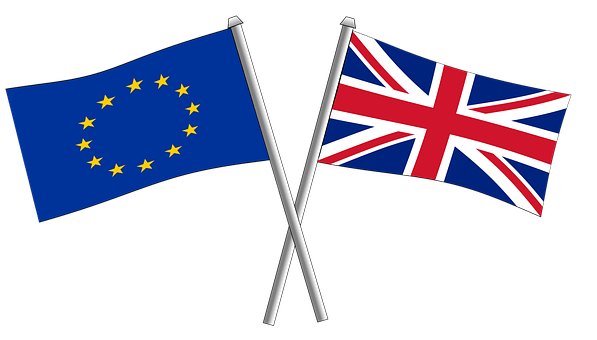
Separation Complication
When the British Parliament voted just before New Year’s to advance Prime Minister Boris Johnson’s Brexit plan, it brought a new set of considerations – legal, financial and operational — into play for companies doing business in the UK and European Union.
They’d been preparing for months.
“I am happy that all the planning we did for no deal being reached wasn’t wasted, because it could have been a minefield,” says Ben Woodman, Commercial Director at GB eye. “The potential for added costs is there with the new agreement, but it is nowhere near what it would have been if there was no deal. At least we have a framework to work from and we are all working toward the same agreement. There is additional paperwork, but we have been working on that basis for a long time.”
The obvious area of attention is trademark registrations, making sure that they’re properly filed and up to date in both areas.
Territory definitions
Agreements which once enveloped the UK into a pan-European bundle, now should specifically mention it. “For the sake of clarity,” says Esther Jolley of the Stobbs legal firm, “it might be wise for the licensee/licensor to agree a communication or amendment to the contract to indicate that for the avoidance of doubt, the UK is still considered part of the ‘Europe’ for the purposes of the MG, for example.”
Another point to note: Under the Treaty of Rome, UK-based licensees with rights for the UK, were permitted to fulfill passive (non-solicited) orders from EU retailers. But with Brexit, they now need to make sure they have rights to sell outside their own borders. The same applies in the other direction: EU licensees need to be clear about whether they have rights for the UK.
“As soon as the deal was implemented it was unlikely any licensor would immediately crack down on any licensee that sold into the UK under passive sales,” says an executive at a licensing agency in the UK. “We have yet to see a precedent set yet, but licensors will be coming for those licensees that aren’t abiding by the rules. We are holding our breath to see who moves first or are licensors going to let it ride out” for some period of time.
Costs and pricing
Licensees tell us the Brexit agreement increases their costs 5-10%, in the form of tariffs, shipping, paperwork (customs, etc.) and logistics. To offset some of that increase, some may look to shift some production closer to home.
“I think it is going to make people sit up and realize that they need a more flexible supply chain and you just can’t rely on manufacturing in China,” an issue tied not only to Brexit, but also to last year’s pandemic-related factory shutdowns in China as well as shipping logjams from Asia, says Woodman.
Anticipating a deal, some suppliers have spent the last several months stockpiling inventory on either side of the border to avoid the expected — and now real – tariffs.
The full Brexit-related costs are unlikely to be passed on to retailers or consumers.
“There won’t be a significant price increase, but it will make doing business (in the UK) harder and some [EU] companies are going to think about whether they need to service the UK,” says an executive at an EU toy licensee. “You may have some companies that just service the EU and don’t think the UK is worth the bother.” He does, however, hold out hope that modifications to the current deal “5-10 years down the line” may improve that picture.

















